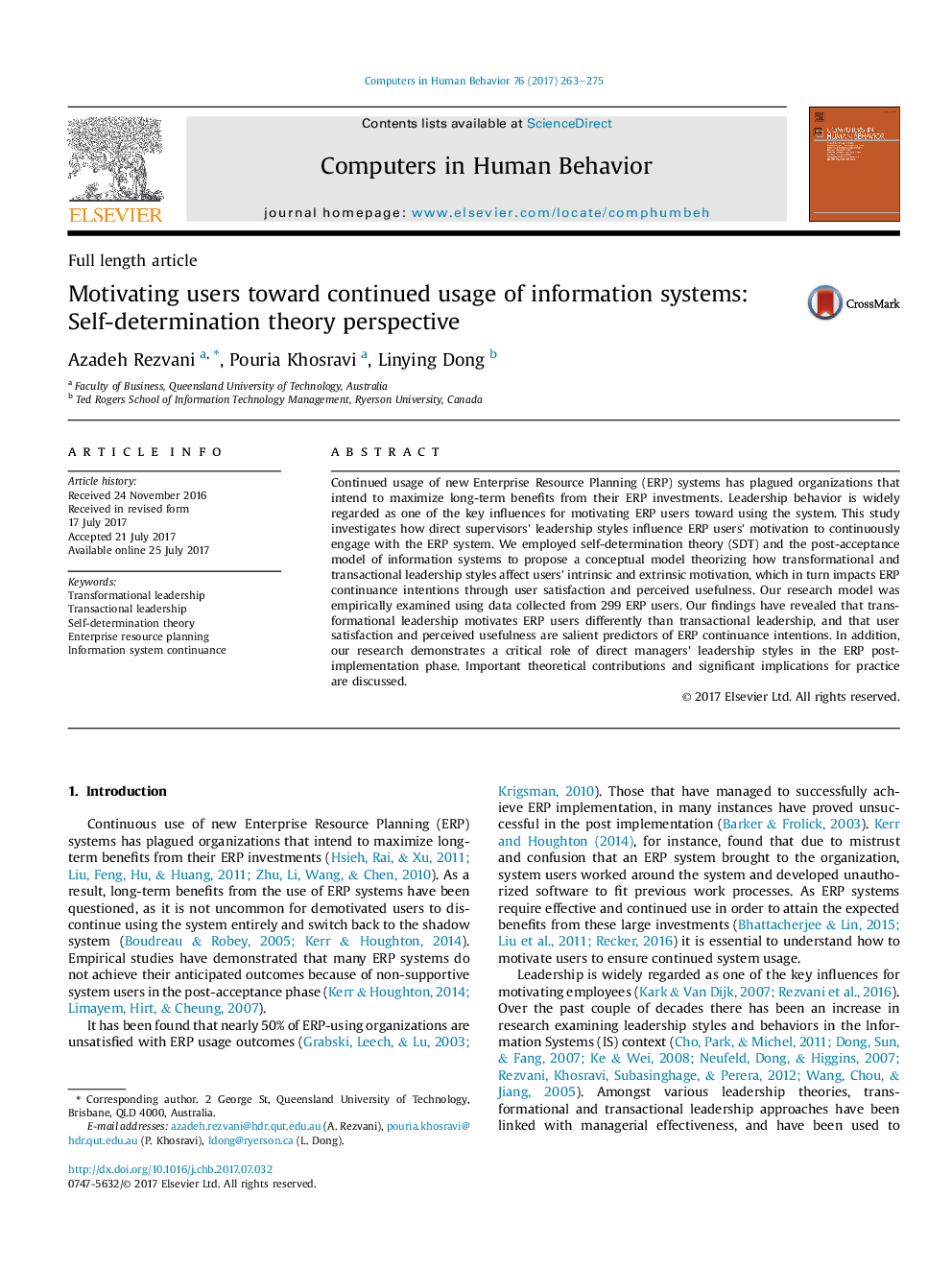| Article ID | Journal | Published Year | Pages | File Type |
|---|---|---|---|---|
| 4937425 | Computers in Human Behavior | 2017 | 13 Pages |
Abstract
Continued usage of new Enterprise Resource Planning (ERP) systems has plagued organizations that intend to maximize long-term benefits from their ERP investments. Leadership behavior is widely regarded as one of the key influences for motivating ERP users toward using the system. This study investigates how direct supervisors' leadership styles influence ERP users' motivation to continuously engage with the ERP system. We employed self-determination theory (SDT) and the post-acceptance model of information systems to propose a conceptual model theorizing how transformational and transactional leadership styles affect users' intrinsic and extrinsic motivation, which in turn impacts ERP continuance intentions through user satisfaction and perceived usefulness. Our research model was empirically examined using data collected from 299 ERP users. Our findings have revealed that transformational leadership motivates ERP users differently than transactional leadership, and that user satisfaction and perceived usefulness are salient predictors of ERP continuance intentions. In addition, our research demonstrates a critical role of direct managers' leadership styles in the ERP post-implementation phase. Important theoretical contributions and significant implications for practice are discussed.
Keywords
Related Topics
Physical Sciences and Engineering
Computer Science
Computer Science Applications
Authors
Azadeh Rezvani, Pouria Khosravi, Linying Dong,
